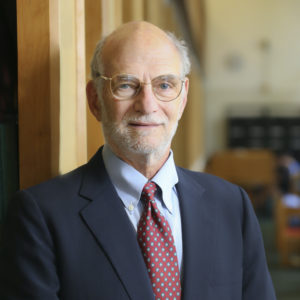The Circadian Rhythm Story: Past, Present and Future
The last 35-40 years has seen a sea change in the field of circadian rhythms. This modern era began with work in Drosophila (fruit flies), which has been a leading genetic system for more than 100 years. Michael and his colleagues discovered the clock mechanism that underlies circadian timing, and it turned out that the genes and mechanism are conserved in all animals. This circadian system governs a large fraction of all gene expression, once again extending from fruit flies to humans, which explains why so much animal physiology (biochemistry, metabolism, endocrinology, behavior, sleep, etc.) is under temporal control. The broad reach of circadian biology indicates that it will continue to be important to many aspects of human well-being and will become increasingly relevant to medicine as more knowledge and applications accrue.
Michael will also touch on unusual and interesting features of the 150 adult fly brain clock neurons, which is of major interest to his current lab. They play an important role in regulating sleep and wake behavior. Their small numbers present a challenge, as many molecular methods of interest are biochemical and therefore difficult to apply to these neurons. (There are in contrast about 100,000 total neurons in the adult fly brain.) Insha’Allah, Michael will have sufficient time at the end of his remarks to make some philosophical and political comments about behavioral genetics as well as to address the contemporary research landscape that we all currently inhabit.
Presented by:
Michael Rosbash, Ph.D.

Professor of Biology and the Peter Gruber Professor of Neuroscience at Brandeis University
View SlidesNavigate the Site
2025 GoldLab Symposium
Save the date!
Please join on May 15-16, 2025Presenters In The News
Contact Info










